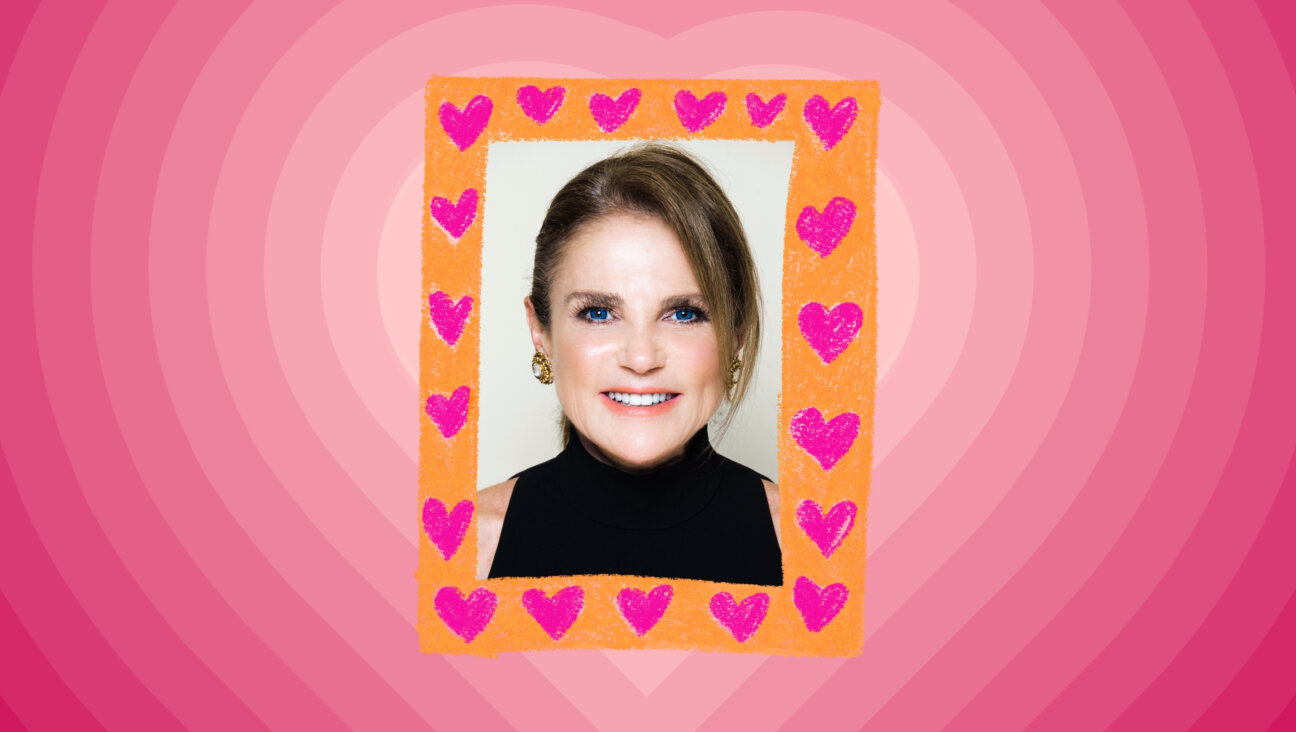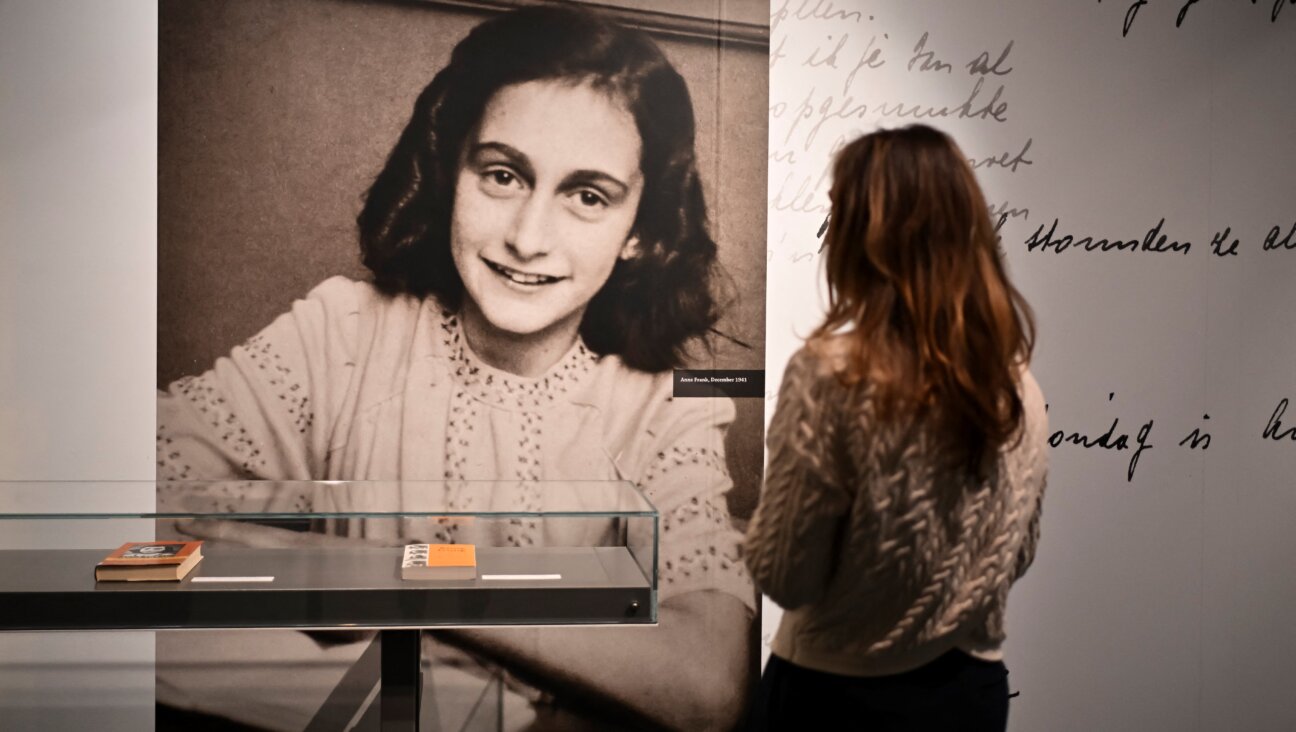Rabbinical Turf Fight in Lithuania Spills From Shul Onto Front Pages
A months-long battle between two rabbis in Lithuania turned violent last week as the pair scuffled during the Jewish harvest festival of Shavuot.
As with most matters involving their feud, both Rabbi Sholom Krinsky and Rabbi Chaim Burshtein are claiming the high road and are unable to agree on the basic facts of the situation. Each rabbi blamed the other’s supporters for last week’s Shavuot brouhaha in the Lithuanian capital of Vilnius.
The fracas was the latest chapter in a fight for the recently created title of chief rabbi of Lithuania and its 6,000-odd Jews — and for control of potential property restitution that could total millions of dollars. The battle has helped resurrect centuries-old polemics in the Baltic state and spilled over onto the front pages of local newspapers, while focusing the spotlight on what leaders of the Chabad-Lubavitch movement say is an increasing international turf battle with the American Jewish Joint Distribution Committee, an international welfare agency maintained by American Jewish federated charities.
Neither of the dueling rabbis is a Lithuanian native. Krinsky came nearly a decade ago. He was sent to Vilnius after the head of the local community, Simon Alperovich, contacted officials at the Chabad Lubavitch World Headquarters in Crown Heights, Brooklyn, and requested that they send a rabbi. A nephew of Lubavitch leader Rabbi Yehuda Krinsky, he is praised by leaders of nearby communities and visitors to Vilnius for his 10 years of trying to supply local Jews with kosher food, a religious education and opportunities for engaging in Jewish ritual.
Burshtein is the more recent arrival, having come to Lithuania just a few months ago — also at Alperovich’s behest. The plan was for Burshtein to fill the new post of chief rabbi, instead of Krinsky, whom Alperovich now opposes. But Krinsky and his followers have waged a fierce battle for the title.
Burshtein has delivered speeches accusing Krinsky’s advocates of following a “cult.” They allegedly shout, yell and clap in an effort to disrupt Burshtein each time he takes the pulpit. Krinsky leads the protests, according to Burshtein’s allies.
Brushtein and Krinsky offered conflicting accounts of the Shavuot fight. Krinsky said that Burshtein was shoving youngsters off the pulpit during services, then interrupting Krinsky’s reading of the Torah with another anti-Chabad speech. Krinsky said that he was attacked later by Burshtein’s followers.
Burshtein claims it was Krinsky’s interruption of the reading of the Book of Ruth that prompted the synagogue arguments. Days later, according to Burshtein, he was in his apartment when Krinsky showed up with his supporters and initiated the violence.
Police in Lithuania did not reply to the Forward’s inquiries.
In an interview with the Forward, Burshtein had sharp words for the international Chabad movement, calling it “corrupt” and claiming that it attempts to “take over” Jewish communities throughout the world.
Meanwhile, Krinsky and his supporters have challenged Alperovich’s status as leader of the Jewish communal representative body and the separate organizations charged with running the community’s religious affairs. They say they voted Alperovich out of office back in February — a claim he refutes, saying the move was taken unlawfully. As for Alperovich’s position as titular head of the Jewish community, Krinsky was dismissive, saying his indirect election by a few dozen leaders of Jewish organizations does not represent the will of the Jewish majority in Lithuania. Several of Krinsky’s followers sent the Forward a letter claiming that Krinsky already had been the chief rabbi of Lithuania for some time before Burshtein’s arrival.
In protesting Krinsky, Alperovitch and Burshtein have frequently invoked the 18th-century criticism of the Hasidic movement by Lithuania’s most famous rabbinic figure, Rabbi Eliyahu ben Solomon Zalman, known as the Vilna Gaon. His distaste for the then-nascent Hasidic movement is well known. But most Jewish communities around the world — indeed, even many of the Gaon’s descendants in Vilnius — long ago buried the hatchet in the ideological battle between Hasidim and their opponents, known as the Misnagdim.
Krinsky complained to the Forward that his opponents are trying to “mix in here an argument which ended long ago” and characterized Alperovitch’s claim of communal dislike for Hasidim “an open lie.” To prove his point, Krinsky noted he had been invited by Alperovitch in 1994.
Mixed up in the feud is the American Jewish Joint Distribution Committee. Krinsky claims that the JDC has served as a “source of discord and disunity in the community” by supporting Burshtein. For its part, the JDC officials said they will take their cue from Alperovich, as long as he serves as the official leader of the main communal representative body.
The JDC claimed the community had been requesting a new rabbi for a few years, more actively in the past year or so after securing needed funding. Alperovitch told the Forward that he had been searching for a new rabbi “for the whole 10 years” since Krinsky’s arrival. Krinsky countered that Burshtein was brought in so that Alperovitch could have a rabbi he controlled, in order to claim millions of dollars in restitution properties that may be delivered by the Lithuanian government under pending legislation.
Officials at the JDC are eager to paint their troubles with Chabad in Vilnius as an isolated incident. But the JDC also drew criticism from a Chabad leader in Riga, Latvia, Rabbi Mordechai Glazman.
Glazman told the Forward that he has not had a good relationship with the organization, contrary to the JDC’s claim. He said, “I have a file that already I can print out a book from, of the games with the Joint over the many years.”
Visitors to the community tend to support Krinsky. Mark Gitler, who spent years working in Belarus for Yeshiva and University Students for the Spiritual Revival of Soviet Jewry, told the Forward: “On many occasions I was in Lithuania…Rabbi Krinsky was always very giving, very warm, running wonderful programming.” Gitler added: “I’m not a big fan of Chabad in the Soviet Union for my own reasons, but I was always impressed” with Krinsky.
A message from our Publisher & CEO Rachel Fishman Feddersen

I hope you appreciated this article. Before you go, I’d like to ask you to please support the Forward’s award-winning, nonprofit journalism so that we can be prepared for whatever news 2025 brings.
At a time when other newsrooms are closing or cutting back, the Forward has removed its paywall and invested additional resources to report on the ground from Israel and around the U.S. on the impact of the war, rising antisemitism and polarized discourse.
Readers like you make it all possible. Support our work by becoming a Forward Member and connect with our journalism and your community.
— Rachel Fishman Feddersen, Publisher and CEO























